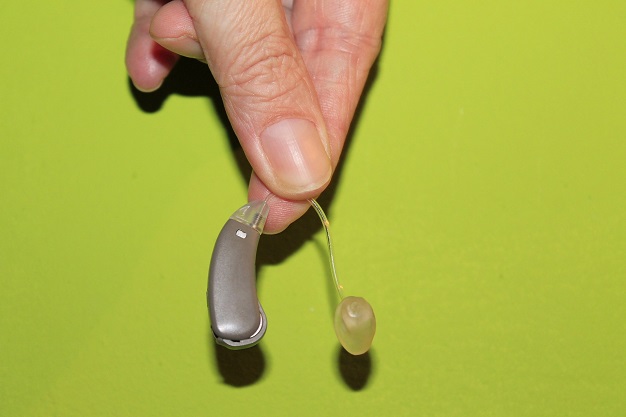Considering hearing aids? What you need to know about hearing devices

If you’ve just got your hearing tested, you must be wondering if you really need a hearing aid. You might ask yourself: Who makes hearing aids? How do they actually work? Do they really improve hearing?
Getting new hearing aids can be daunting if you don’t know much about them and how they work for you. Choosing the right style and type of hearing aid is a big decision too and one that should be made after proper information that should be provided by your health professional and audiologist before you make your choice.
We understand it can be overwhelming to learn about hearing aids at first, so we’ve created a guide for you to make it easier to decide on the right hearing aid for your needs.
What is a hearing aid?
A hearing aid is a small electronic device that’s recommended by your audiologist if you have been diagnosed with hearing loss to help with hearing and speech comprehension. Hearing aids work through three components: microphone, amplifier and speaker.
Firstly, they work by collecting sound waves through the directional microphones and turning it to electrical signals, which is sent to the amplifier and then to the auditory nerve in your ear through the speaker. When you wear heading aids, the amplified sound sent by the speaker is interpreted by your brain to determine and understand sounds.
Types of hearing aids
Hearing aid technology is constantly advancing from one stage to the next. Whether you have mild to profound hearing loss, it’s important to explore all the options available to choose the right hearing aids for you.
Choices such as digital hearing aids, analog aids, two hearing aids that are completely wireless as well as features such as remote controls and directional microphones to help interpret sound vibrations or noise reduction are all options that need to be considered. Some advanced hearing aids can require a substantial investment so it’s essential to get the right information and make an informed decision.
Below are the styles of hearing aids that are available:
In the canal or invisible options (ITC, ITE, CIC, IIC)
Smaller hearing aids such as in the canal (ITC) and in the ear (ITE) are suitable if you’d like a discrete pair of hearing aids. However, there are invisible options such as completely in the canal (CIC) and invisible in the canal (IIC) as they are suitable if you’d like the hearing aids to be placed deep in your ear canal.
They are the smallest options, so they often don’t have additional features and are limited by power and volume compared to larger hearing aids.
Receiver in canal (RIC, RITC)
Receiver in the ear (RITC) and receiver in canal (RIC) hearing aids place the loudspeaker inconspicuously in the ear canal and are the medium sized option. They are suitable for people who would like a smaller hearing aids that are just as powerful as the largest hearing aid. It allows for features such as the battery and microphone to be placed on the outer ear, whilst the speaker is placed in the inner ear canal.
Behind the ear (BTE)
Behind the ear (BTE) aids is the largest option and is placed on the outer ear, allowing the hearing aid user to adjust the settings as they please. The the open fit hearing aid design in the BTE range is connected by the ear mold, which fits inside the canal and the rest of the aid fits behind the ear completely.
Most hearing aids in this style is suitable for people of all ages and various levels of hearing loss. It’s also recommended for people that have a lot of ear wax as there is less chance of the BTE aid components being damaged inside the canal.
How do hearing aids help with hearing loss?
Hearing aids can help amplify sound to your ears and reduce background noise to help you live normally with hearing loss.
After your hearing test, you might be diagnosed with mild to moderate hearing loss or severe hearing loss depending on your individual circumstances. Your new hearing aid will not restore normal hearing, however, it can help you understand speech and result in improved hearing in a range of environments for hearing aid users.
Get in touch to find out more
If you’re having trouble hearing or need a hearing aid fitting, contact our health care professionals and audiologists at ACE Audiology to set up an appointment. Our team has years of experience in diagnosing and recommending the right type of hearing aid for you.
We can provide medical advice and help you decide on the best hearing aid for your needs. We can also inform you about whether your health insurance can cover hearing aids or not. Book your next appointment with us today. Contact our team through our website, call our Bulleen Clinic on (03) 9850 8888 or our Ivanhoe Clinic on (03) 9440 9409 so we can assist you.
